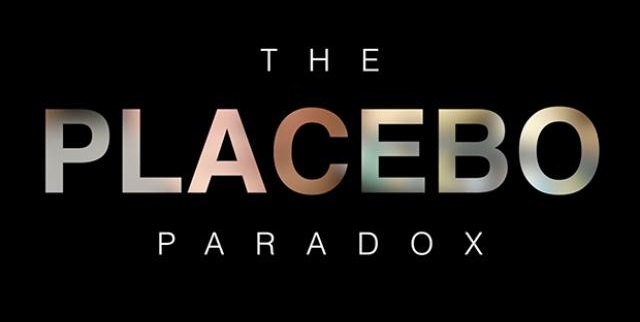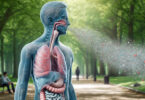28th September 2014
Guest Writer for Wake Up World
When you research medicines, alternative medicines, even medical treatments that do not involve a physical substance, you will see reference to the “placebo effect”; statements such as:
X is no better than a placebo…
Y is probably just a “placebo effect“…
Treatment X is just a placebo…
Medicine X failed to beat a placebo in controlled clinical studies…
What is a placebo? What is the placebo effect? Is it real, fake, or something else? Is the placebo effect magic? No, but placebo effects are a paradox.
Merriam Webster defines the placebo effect thus: “improvement in the condition of a patient that occurs in response to treatment but cannot be considered due to the specific treatment used“. Thus, the placebo effect is a real effect in response to a treatment that cannot cause that effect. A paradox.
Each instance of “placebo effect” is based on the theory that the effect “cannot be due to the action of the medicine identified as a placebo”. But theory is impossible to prove. It can only be disproven – by proving what caused the effect. But, when you prove that the effect was caused by ‘something’ it is no longer a placebo effect.
Placebo effects are real. They really do exist. The dictionary and medical textbooks agree. But, a placebo effect as currently defined is a logical paradox.
Defining Placebo
Maybe we should look at the definition of a placebo? Merriam-Webster defines a placebo as: “medicine : a pill or substance that is given to a patient like a drug but that has no physical effect on the patient“. However, this is not precisely true as evidenced by their further definitions, which say: “a usually pharmacologically inert preparation prescribed more for the mental relief of the patient than for its actual effect on a disorder“.
In the first definition Webster’s says “has no physical effect”, but in the second it says it is prescribed for the “mental relief” (which causes a physical effect) of the patient. Medical authorities have problems defining physical things having a ‘spirit’ effect, while brain and mental effects are within their scope.
Webster’s also describes a different type of placebo: “an inert or innocuous substance used especially in controlled experiments testing the efficacy of another substance“. We will come back to this type of placebo later, but for now we will simply name it differently, as a ‘clinical placebo’, because it is a very different case. I will refer to the first type of placebo as ‘placebo’, because it matches the origin of the word placebo, which is Latin for “to please”. A clinical placebo is not created ‘to please’ the patient. It is simply a “fake medicine”.
Why would a doctor give a patient a drug that has no physical effect?
A placebo is a beneficial lie from your doctor. Or in dictionary lingo: “a usually pharmacologically inert preparation prescribed more for the mental relief of the patient than for its actual effect on a disorder, because the doctor believes the lie it will have a positive effect on the patient“.
Doctors prescribe placebo medicines which they believe have no physiological effect – in full anticipation of a positive effect. A placebo is created when a doctor lies to a patient (and possibly to themselves); using “white lies” as useful lies. Statistical surveys have shown that most doctors admit to prescribing placebos some of the time. The words ‘admit to’ are used because the prescription of a placebo is a lie.
What do we call it when someone does something in full belief that it cannot work, expecting it to work and it actually does work? A paradox!
The Placebo Paradox
Placebos are paradoxical. Doctors ‘know’ that the placebo they prescribe cannot work. They prescribe them and they tell the patient they will work, or might work, and sometimes ‘magic happens’ – they actually work. Some doctors are quite good at knowing when “something that doesn’t work” will actually work. Are they magic? Are these doctors ‘witch doctors’?
Of course calling this treatment paradoxical ‘magic medicine’ is not considered scientifically sound, so instead it is called a placebo. Placebo sounds scientific. Yet in medical research placebos are used in clinical studies – so they must be considered scientific.
Placebos can have placebo effects. The placebo effect is real. Thus placebos are real medicines, even though they are lies!
Summary so far:
Placebos are lies your doctor prescribes when he knows he cannot directly help your illness.
Placebos can have real (placebo) effects.
Placebo effects are real.
Placebos are real medicines.
Is the naming of placebos and placebo effects so done under the theory that these are real effects caused by something else? No. The word placebo is Latin and it means ‘to please’. The doctor ‘pleases’ the patient. What happens when the doctor pleases the patient? Does it help the patient’s body? No. It helps the patient’s spirit.
The Hierarchy of Healthicine arises from genetics and nutrients, through cells, tissues, organs, systems, body, minds, spirits, and communities. Medicine, in theory, treats the body – which includes the mind, but not the spirits, and not the communities. Placebos arise from the community and your doctor – who is part of your community – and provide a prescription for hope. Placebos treat the spirit. A good doctor can treat the spirit of the patient, sometimes by providing hope, and sometimes even with a lie.
Spirit Effects
The positive effects of a medicine are not limited to physical effects; they can also include mental and spirit effects. Note: Not ‘spiritual’ effects. Spirituality is a small part of our spirits. Spiritual effects are a small part of spirit effects.
Spirit effects have physical effects, so a medicine that does not have physical effects, and only has effects on our ‘spirit’ leads to physical effects. This makes measurement and distinction between physical effects and spirit effects difficult. If a medicine lifts only your spirits, and when your spirits are lifted you feel better, take your other medicines on time, change your diet, get out and walk the dog, and your health improves, then did the medicine have only a spirit effect? No, the first effect it had was on your spirit.
In the case of the placebo, it isn’t the ‘medicine’ that causes the placebo effect – it is the sense of hope. What we call ‘placebo effect’ is actually the action of lifting the patient’s spirits. The dictionary definition of a placebo is actually incorrect. A placebo is something the doctor recommends when he has no solution to sell. Prescribing a placebo is the act of prescribing hope. It is not the medicine that the patient takes; it is that the patient’s belief in the medicine. Belief has real and powerful effects.
Of course there are medicines that can depress or lift the spirits, such as alcohol and caffeine. But none of these are placebos. These typically result in rebound effects, often called ‘side effects’ as your body recovers from these substances.
Defining the Paradox
We can now define placebo, placebo effect, active placebo and medicine, to remove all of the paradoxes, as thus:
The Placebo
A placebo is a prescription given to lift the spirits of the patient. It often contains a medicine recommendation that the doctor does not believe will have any direct physical effect on the body of the patient. The lift in spirit often results in positive physical effects on the patient.
What’s different about that definition? The difference is it feels right, and there is no paradox. The medicine prescribed is not a placebo. Nothing is a placebo in itself. It becomes a placebo only when it is prescribed by a doctor. The act of giving and receiving a prescription of hope creates a placebo and the placebo effect.
The Placebo Effect
The placebo effect is the effect of a placebo on the spirit of the patient, and the subsequent effect on the patient’s body. Placebo effects are ‘spirit effects’. The strength of a placebo effect is determined not by the substance recommended, but by the sincerity of the doctor, and the belief of the patient.
Let’s be clear here – Placebo effects are not effects of the actual medicine. They are the result of the patient’s belief in the doctor, and the medicine.
An active placebo
An active placebo is a prescription that contains a ‘something’ that has an effect on the patient’s body, not related to the illness. As with a normal placebo, an active placebo does have an effect on the patient’s spirits, often a stronger effect because the patient’s spirit is lifted by the physical sensations of the ‘something’ in the prescribed active placebo.
A medicine
A medicine has a direct effect on the patient’s illness, the patient’s body. To a certain extent, medical prescriptions are also placebos, even if the doctor is absolutely certain they will work. If the doctor believes in the medication, the patient’s spirit, the patient’s “will” is more likely to believe in it too, and therefore the patient is more likely to comply with the doctors advise that he/she take the medicine as prescribed. Therefore, medical prescriptions can also have spirit effects on the patient.
Medicines that are prescribed are also placebos.They have medical effects as well as placebo effects. Even the wrong medicine might have a positive effect due to the strength of the placebo effect. So medicines can still have a positive medical effect, even when the doctor got it wrong! All medicines have the affect of placebo, when they are actually prescribed.
Once we correctly define placebo and placebo effect, there are no paradoxes!
Ethics and Side Effects
Even self-medication can have a placebo effect. A patient chooses a self-medication because of a belief that the medication can have a positive effect. The act of choosing and using the medication lifts the patient’s spirits. Self-medication can be based on previous experiences, or it might come from other people in the patient’s community.
There is still an interesting technicality issue to be addressed here though. The prescribed placebo is a lie – a (usually) harmless ‘white lie’ but technically still a lie. If the doctor was to tells the patient what he himself believes to be the truth (i.e. that there are no beneficial physical effects from a placebo substance), then the ‘placebo prescription’ will not work. So the doctor must lie knowing that if he told his unsuspecting patient he is prescribing a placebo, his attempt to help his patient will likely fail! So instead he lies; “I’m prescribing a medicine”. The nurse, the pharmacist and others might not know it’s a placebo – a spirit medicine – but they don’t need to know for it to work to resolve the patient’s health issue. If they did know, and they were to tell the patient, it is likely the placebo prescription would not be effective.
Placebos are not ‘physical things’. They can lift the spirit because they are imaginary things – above the physical realm. Placebos are real aspects of medicines, they have real effects — and they can even have side effects; effects that were not intended by the doctor.
Clinical Placebos
To this point, we have not discussed Clinical placebos.
Clinical placebos have a different definition and should not be confused with the real placebos. Clinical placebos are null medicines, not real placebos. They could be named ‘fake placebos’ but I believe the term ‘null medicine’ or simply ‘clinical placebo’ is more accurate.
Clinical placebos only exist in a clinical trial, and only when a ‘test medicine’ is being tested in a clinical trial.
Clinical placebos do not require the doctor to lie to the patient. When clinical placebos are used, the doctors are not allowed to lie to the patient, rather – they tell the patient that the doctor does not know if the patient is receiving the ‘medicine being tested’, or a clinical placebo.
Clinical placebos are not designed nor delivered, to improve the spirits of the patient.
Clinical placebos are actually designed to eliminate the real placebo effects from the mathematics of clinical studies. However, this theory is weak and problematical, because even though clinical placebos are not real placebos, they sometimes have placebo like effects.
Clinical placebos are not ‘prescribed’ – they are ‘administered’.
Clinical placebos are not given in the best interest of the patient. They are administered to assist medical scientists gain knowledge for future use.
Doctors who administer clinical placebos want the clinical placebo to fail. If the clinical placebo fails, and the medicine being tested works, then the clinical trial has been a success.
Clinical placebos are very, very different from a placebo from your doctor. A placebo from your doctor is an honest attempt to provide effective medicine for your condition. A clinical placebo is an attempt to determine if a specific medicine provides some statistical benefit.
Clinical Placebo Effects therefore, are still a paradox. We can understand that a normal placebo lifts the patient’s spirits, resulting in better health. But clinical placebos are not designed to lift the spirits of the patient. But the fact is that clinical placebo effects also exist. Why? Because as yet we don’t understand how. When we do understand, this paradox will also fade away.
So… when you read statements such as:
X is no better than a placebo.
Y is probably just a “placebo effect“.
Treatment X is just a placebo.
Medicine X failed to beat a placebo in controlled clinical studies.
Ask “are you talking about a real placebo, or a clinical placebo?”
To your good health, Tracy
Previous articles by Tracy Kolenchuk:
- 10 Reasons to Love Your Homeopath
- We Study Illness with Infinite Precision – But Who Measures Health?
- Community Healthiness: Love and Virtue Strengthen Our Communities
- Body, Mind & Spirit: Understanding the Links Between Health & Consciousness
- Curing Cancer Requires a New Kind of Thinking
- 10 Common Nutrition Myths and Misconceptions
- The Alternative Medicines Myth
- Fatergy Drinks: The “Energy Drink” Myth De-Bunked
- Are You Getting Enough Vitamin M?
- Generic Cancer (Part 4): The End of The War on Cancer
About the author:
Canadian born Tracy Kolenchuk is the author of A New Theory of Cure and several other books.
Tracy is not a doctor. He is the founder of www.healthicine.org and www.personalhealthfreedom.blogspot.com where he works to change the way the world defines and looks at health, healthiness, healthicine, disease, and cure.

If you've found value in our articles, we invite you to support the release of our brand-new book, "Gratitude Practices for Kids: A Practical Guide for Adults to Instill a Spirit of Appreciation and Positivity in the Next Generation."
"Gratitude Practices for Kids" brings together over 25 innovative and accessible practices designed to enhance gratitude in everyday life. This comprehensive guide is backed by 17 scientific studies, ensuring each concept is grounded in research, underscoring our commitment to nurturing growth, emotional intelligence, and positive interactions between adults and children.
We encourage you to opt for the paperback version to celebrate this new release. Dive into its fresh pages away from digital distractions, allowing you to immerse yourself in the transformative practices it offers.
Over recent years, Wake Up World has faced significant online censorship, which has impacted our financial ability to operate. Moving into book publishing represents a strategic step to secure the ongoing funds needed to continue our mission. By purchasing Gratitude for Kids, you help us keep our content free and accessible to everyone, avoiding needing a paywall. With over 8,500 articles published in the last 13 years, we remain dedicated to keeping our valuable content open to all.









